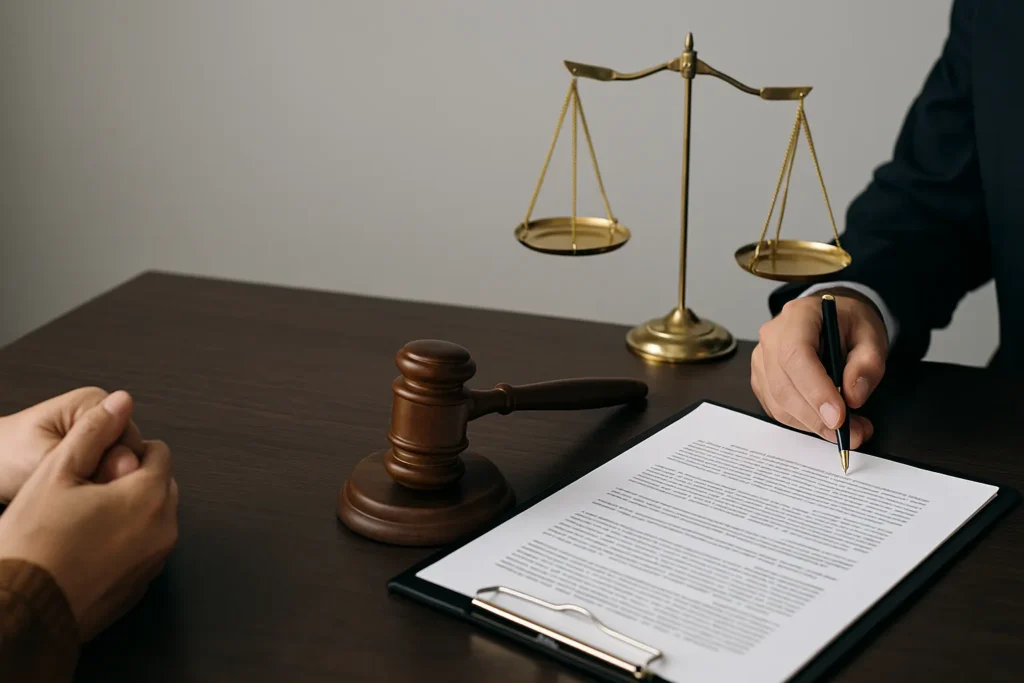
Trust and Will’s 2025 Estate Planning Report shows that the majority of Americans recognize the importance of estate planning, but only a small proportion of them, 31%, have actually prepared a will. Trusts are mainly intended to safeguard the assets and carry out the deceased person’s wishes. Know that there can still be disputes among the heirs concerning the trustee or with other parties involved. Arguments might be based on claims of improper handling, pressure, or vagueness in terms of trust.
Cases regarding trust disputes can happen and the prosecution of these matters can differ between states. For example, California trust litigation normally happens when family members (siblings, children, second marriages, blended families) have different notions about the trust’s operation and actual purpose. Resolution through communication or mediation might not be the case sometimes, and the dispute might have to escalate to legal action. Let’s see the typical situations when it becomes necessary to initiate lawsuits for disputed trusts.
Understanding Trust Disputes and Their Common Causes
Understanding common causes of trust disputes will certainly help you deal with complexities arising. Such disputes usually arise if there is ambiguity in the trust documents. Human emotions and relationships
Differences of opinion might arise between heirs as to what the grantor wanted. Matters such as undue influence or lack of capacity can create a conflict instead of trust. Understanding some of these common causes will help you communicate and develop solutions that preserve the family legacy. Get ready for new difficulties to come up and as a result, you have to acquire the skill of managing the issues that are likely to occur.
Recognizing Signs That Legal Action Is Necessary
In a conflict regarding trust, what circumstances would lead you to decide that it is the right moment to go for legal action? Firstly, think about whether there has been a total communication collapse between you and the other heirs or not.
If you have tried out-of-court means and they have not worked, then it might be the right time to go for a legal battle. After that, try to identify the uncommon and irregular indicators of a trust being managed properly or mishandled. If you are suspicious of the trustee misusing his/her power of discretion and working against the interests of others, then your suspicion is a clear sign to seek legal action.
If at any point you realize that the problem is just too overwhelming for you to handle and you are at a loss as to what to do next, do not hesitate to enlist the services of a legal professional. It is not unusual to find oneself in such a dilemma, but still, many have managed to come out of it through taking the legal route to a solution. Instinct should always be trusted and assistance should be requested in times of doubt.
Assessing the Timeliness of Your Lawsuit
Before you file a lawsuit in a trust dispute, it is important to determine whether you are suing within the proper period. Every state has statutes of limitations setting a time frame within which you may acquire the right to sue.
Waiting long enough might result in a loss of the opportunity, making you feel more lonely and frustrated. Gather all relevant data and supporting documents to effectively start building your case. An experienced trust dispute lawyer will advise you on your deadlines and help you through the process. Taking sudden action can rapidly transform your situation for the better.
Evaluating the Potential Outcomes of Filing a Lawsuit
When considering your options for a trust dispute lawsuit, you must think about the outcomes that could come about with your choice to pursue one. A settlement in your favor could restore family harmony and preserve relationships. Litigation may bring a long and expensive process that could strain certain ties with loved ones. Carefully assess if pursuing a lawsuit will provide relief or if it will make the rift a little deeper.
You might also lose the trial and have to pay the legal fees with no satisfaction at all. When you contemplate the potential results, you will discover the most significant aspect for you. It would be simpler for you to traverse the course that corresponds with your morals and the most crucial individuals in your life.
Steps to Take Before Initiating Legal Proceedings
The proper pre-litigation steps can significantly influence the resolution of your trust dispute. Try to settle the dispute first by keeping the communication channel open. This approach builds understanding and augments relationships.
If the worst-case scenario might happen, then you are better off gathering the necessary information and evidence about the trust, which would give you a stronger case. A lawyer can be consulted to help you handle the legal system. According to a wills & trusts lawyer in New Haven, your family and loved ones could be left with contentious probate battles or tax burdens if you are not equipped with the proper estate planning tools.
Reasons and goals should be analyzed to help you make the proper decision. Try to find a compromise between family harmony and your requirements.
FAQs
A trust dispute occurs when beneficiaries or trustees disagree about how assets are managed, distributed, or interpreted under a trust.
Common causes include vague trust terms, alleged trustee misconduct, undue influence, or lack of mental capacity of the trust creator.
Legal action is often necessary when communication breaks down, mediation fails, or there’s evidence of mismanagement or fraud.
Signs include lack of transparency, missing financial records, biased distributions, or ignoring beneficiaries’ rights.
Each state sets its own statute of limitations, typically ranging from one to four years after discovery of the issue.
Yes. Mediation or arbitration can sometimes resolve disputes faster and more amicably than full litigation.
A successful outcome might remove a trustee, recover misused assets, or ensure fair enforcement of the trust’s terms.
Litigation can be lengthy, expensive, and emotionally draining, especially among family members.
Document all evidence, attempt communication or mediation, and consult an experienced trust litigation attorney.
A lawyer can interpret trust documents, ensure compliance with state laws, file claims on time, and represent you in court effectively.













